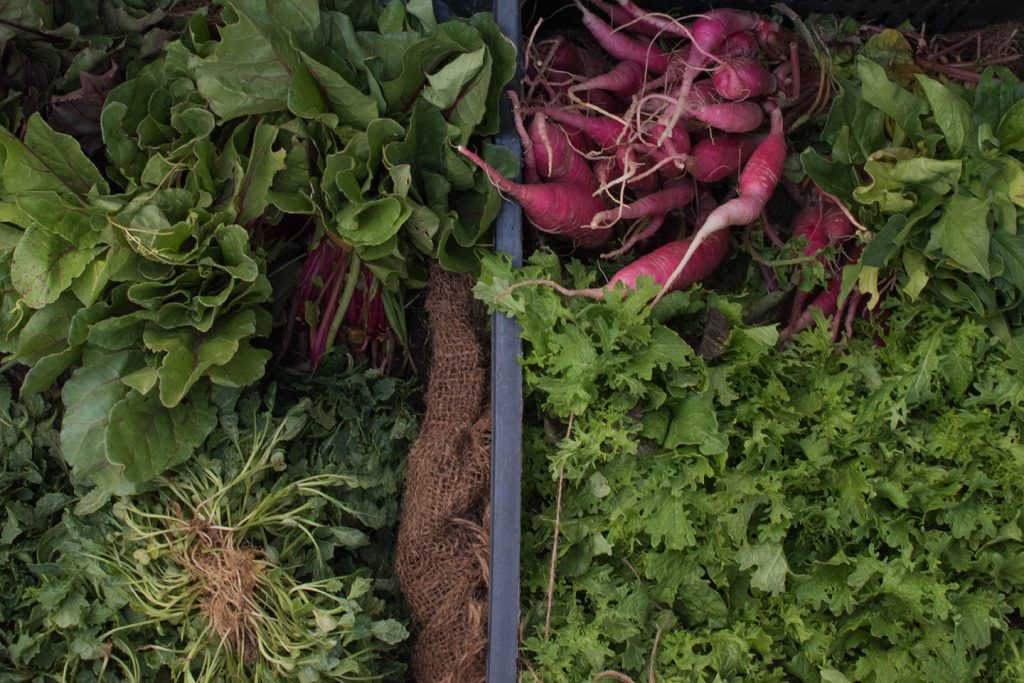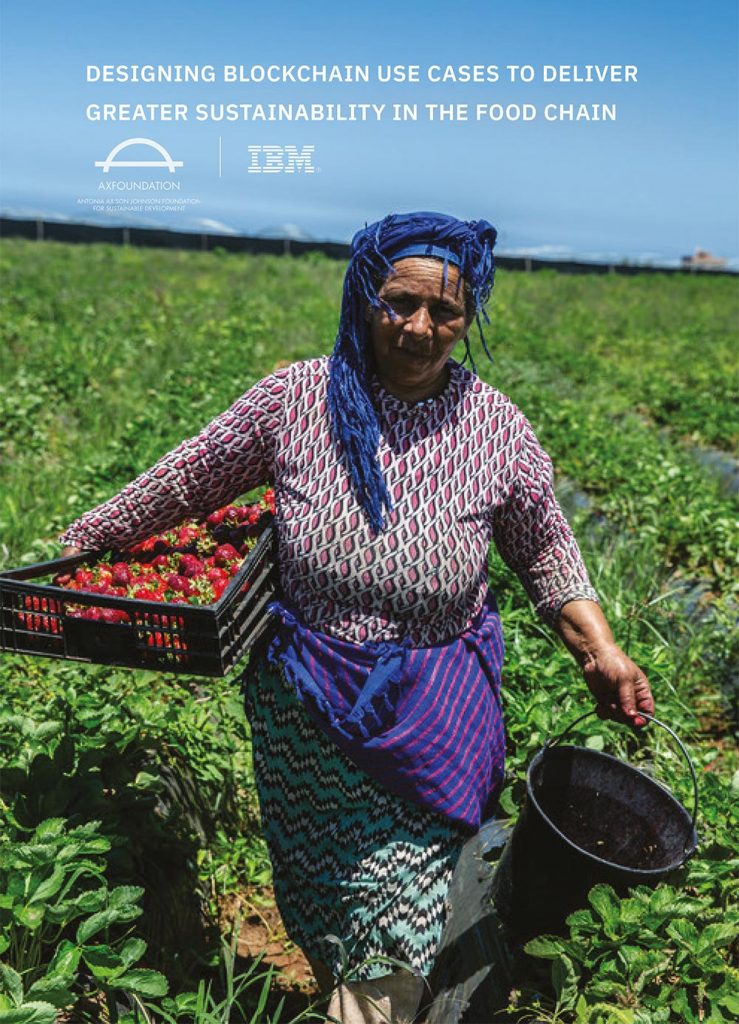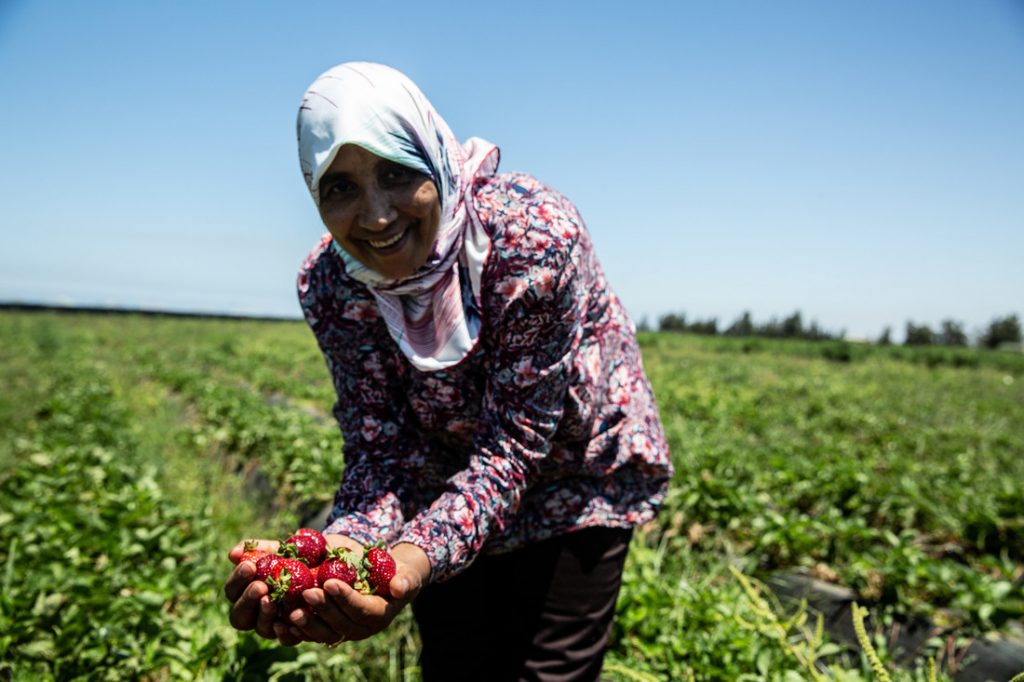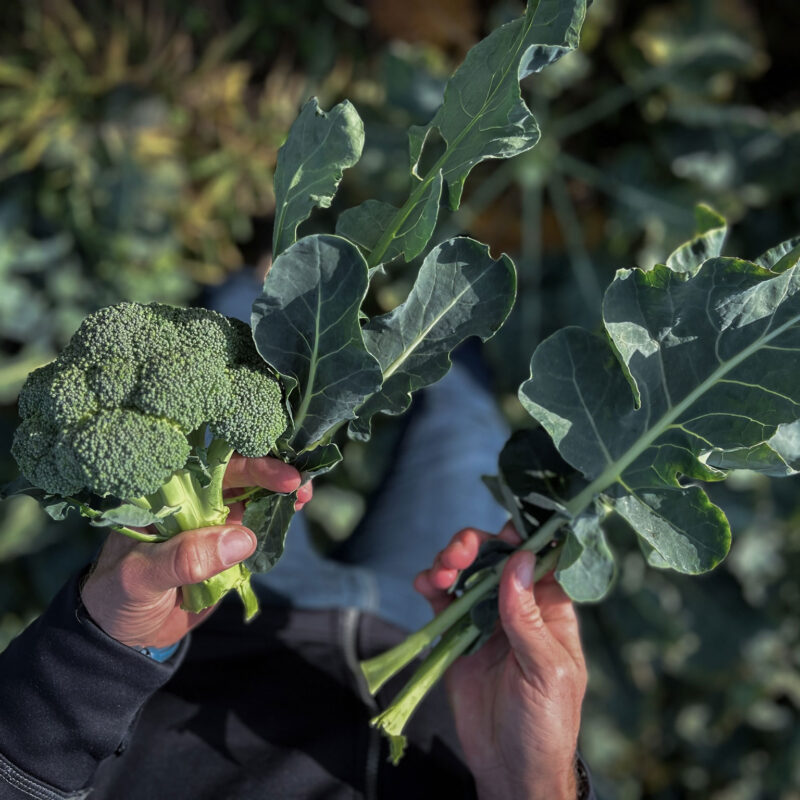Blockchain in the Food Industry
Why would blockchain, a technology originally designed for the financial sector and crypto currencies, be interesting for the food industry? Well, because it promises to radically simplify accessing reliable data on a product's origin, production conditions and distribution along the supply chain. The food chain is one of the most complex and fragmented supply chains in the world and many companies struggle with the opportunity to follow up and guarantee where and under what conditions a product has been produced. During 2017-2019, Axfoundation ran a project with sector-wide collaboration that aimed to evaluate blockchain's potential to provide practical solutions in the food industry. Several challenges led us to decide not continue with the planned pilot.

Traceability of products is still a major challenge in the food industry.
The Issue
The international food supply chain can consist of up to 10-15 intermediaries, who are interdependent, but where trust between actors is often low. This makes it difficult for retailers and wholesalers to trace the product’s journey and to determine its origin. Often this is due to poor communication channels, which are not-seldomly only between two actors at a time and towards only one direction of the supply chain. Furthermore, effective communication is hampered by slow digitization of processes and time-consuming administration.
Poor transparency throughout the supply chain minimizes the possibility for companies to affect change, not only within production processes but also in avoiding fraud. In addition, relevant data rarely reaches the consumer. Increasing transparency is not easy. It requires the will and cooperation of all actors in the food supply chain. Unfortunately, today conflicts are common while the solutions are costly. Ensuring that standards are met requires following up on suppliers, which is a time consuming process where cooperation is seldom.
Our Solution
Blockchain is a cloud-based digital system that can function as a decentralized database for the food industry. The system allows actors connected to the blockchain to access all data shared by all actors in the chain. This technology has the potential to also strengthen trust between actors, since the data uploaded cannot be manipulated or changed retroactively. Furthermore, any actions on the database are recorded and tied to the actor.

Blockchain promises to radically simplify processes of food regulation, origin control and traceability. This technology is however, still underdeveloped. Questions remain about how blockchain should be scaled up, integrated and best implemented in complex human driven environments.
Another challenge is ensuring the credibility of data uploaded to the blockchain. Various digital innovations, such as IoT’s (Internet of Things), RFID (Radio-Frequency Identification) codes, satellite imagery and more, are important tools that complement the blockchain in order to validate and guarantee data authenticity.
“Blockchain has the potential for environmental and social monitoring of supply chains. There is still however a long way to go with its development. Supply chains are often complex and issues of upscaling are still unsolved, which complicates the analysis. “
Our Work
Axfoundation is convinced that broad collaboration and increased transparency are key to solving the complex issues and challenges we face in the food industry. During 2017 to 2019 did Axfoundation, along with a dozen actors from the food industry, explore blockchain’s potential in the food chain. Our goal was to learn together and to slowly develop practical ways to test the potential of blockchain.
Addressing industry-wide challenges requires coordinated efforts involving all stakeholders. It is essential that public, private and non-profit actors work together to address the challenges of the food industry. Our project and the report are steps in this direction.
A preliminary study on the potential of blockchain
The project began with a feasibility study, where Axfoundation together with Martin & Servera, SKL Kommentus, Sustainable Procurement (a collaboration between Sweden’s provinces) and Kairos Future mapped blockchain’s potential within the Swedish food industry.
A real life implementation of blockchain
After the feasibility study, Axfoundation wanted to know how a practical application of blockchain might look like. We started an industry initiative in collaboration with IBM, with the goal of mapping blockchain’s capacity for increasing traceability and transparency at three supplier levels. Participants in the project were retailers such as: Axfood; wholesalers such as Martin & Servera; food-producing companies such as Orkla, Absolut Company and Coca-Cola; public actors such as the Procurement Authority and SKL Commentus; research bodies such as RISE; and interest organizations such as the Marine Stewardship Council (MSC) and Oxfam.

The project was built around three full-day workshops where IBM conducted design studies based on three cases: origin and traceability of MSC-certified pike from Lake Mälaren; verification of working conditions for female farm workers in Morocco; and transparency of Swedish added value in Swedish pig breeding. These design studies allowed participants to apply blockchain theory to actual supply chains, which enabled a deeper understanding of the potential of blockchain technology in the food sector. The project resulted in a report, “Designing blockchain use cases to deliver greater sustainability in the food chain”, which summarizes some of the key conclusions and observations from the three supplier paths the group explored.

Axfoundation conducted a field study on a strawberry farm in Morocco.
In-depth study on strawberries from Morocco
In the spring of 2019, Axfoundation conducted a field study on one of the supply chains explored in the design study – Axfood’s Moroccan strawberry supplier. The field study revealed several challenges in implementing blockchain in the international food supply chain. Among other things, the lack of trust between actors and the absence of clear benefits for all parties involved was crucial to Axfoundation´s decision to not continue with the previously planned pilot during the harvesting season 2020.
The most obvious advantage of applying blockchain to the food industry is its ability to provide traceability of a product’s origin or quality. However, we wanted to see if blockchain also could be used to track social aspects- like if working conditions are followed. If workers on the Moroccan strawberry farm would use blockchain to record their working hours in conjunction with their contracts, a buyer on the other side of the world can trust that working conditions meet the standards that they expect from the supplier. However, it is crucial that all actors have been fully identified on forehand and that there is a clear incentive to share data and participate. Our initial field visit shows that this was not the case. I see this as a human challenge and not a tech one. – Hanna Hobohm Skoog, Axfoundation
Partners
Axfood, Coca-Cola, Dirafrost, Ekofisk, EquiNordic, GS1, Gård & Djurhälsan, IBM, Marine Stewardship Council (MSC), Martin & Servera, Orkla, Oxfam, RISE, SKL Kommentus, Stockholms Fiskauktion, The Absolute Company, The National Agency for Public Procurement
About Blockchain
Blockchain functions through a so-called “shared ledger”, where all types of information can be registered and shared with all participants in the blockchain. There are four basic mechanisms in blockchain technology: the shared ledger; a method of consensus; smart contracts; and effective ways of implementing a certain degree of integrity. These mechanisms improve the ability to track where products come from, and that information has not been manipulated along the way. Blockchain technology can achieve this functionality without any of the controls that are normally needed today in the food supply chain.
Verified origin of data: Although blockchain does not guarantee that the uploaded data is accurate, a clear audit trail is created showing who uploaded it and when. Each actor is thus clearly linked to his actions, which means that the origin of the problem can be identified.










































































